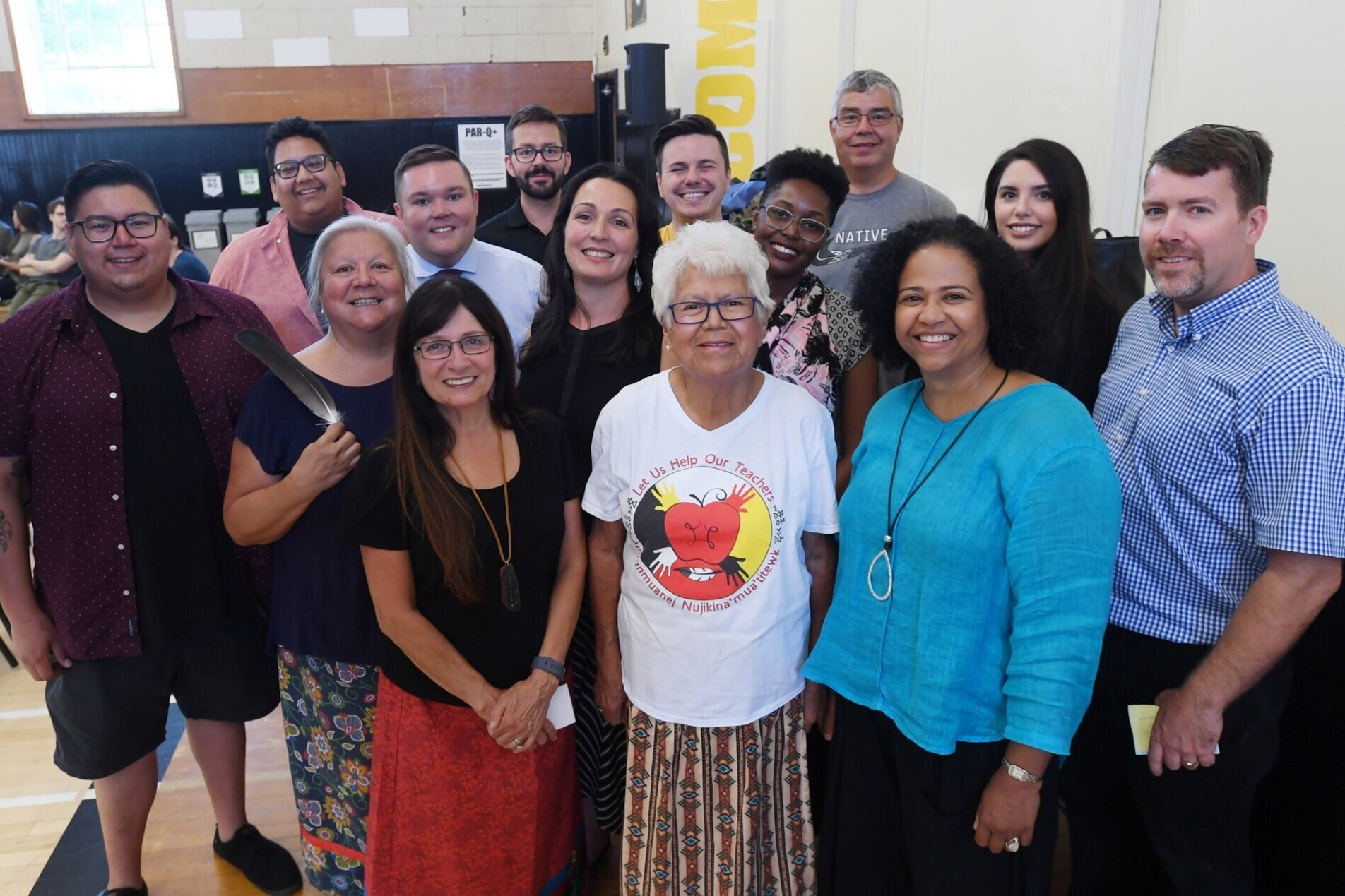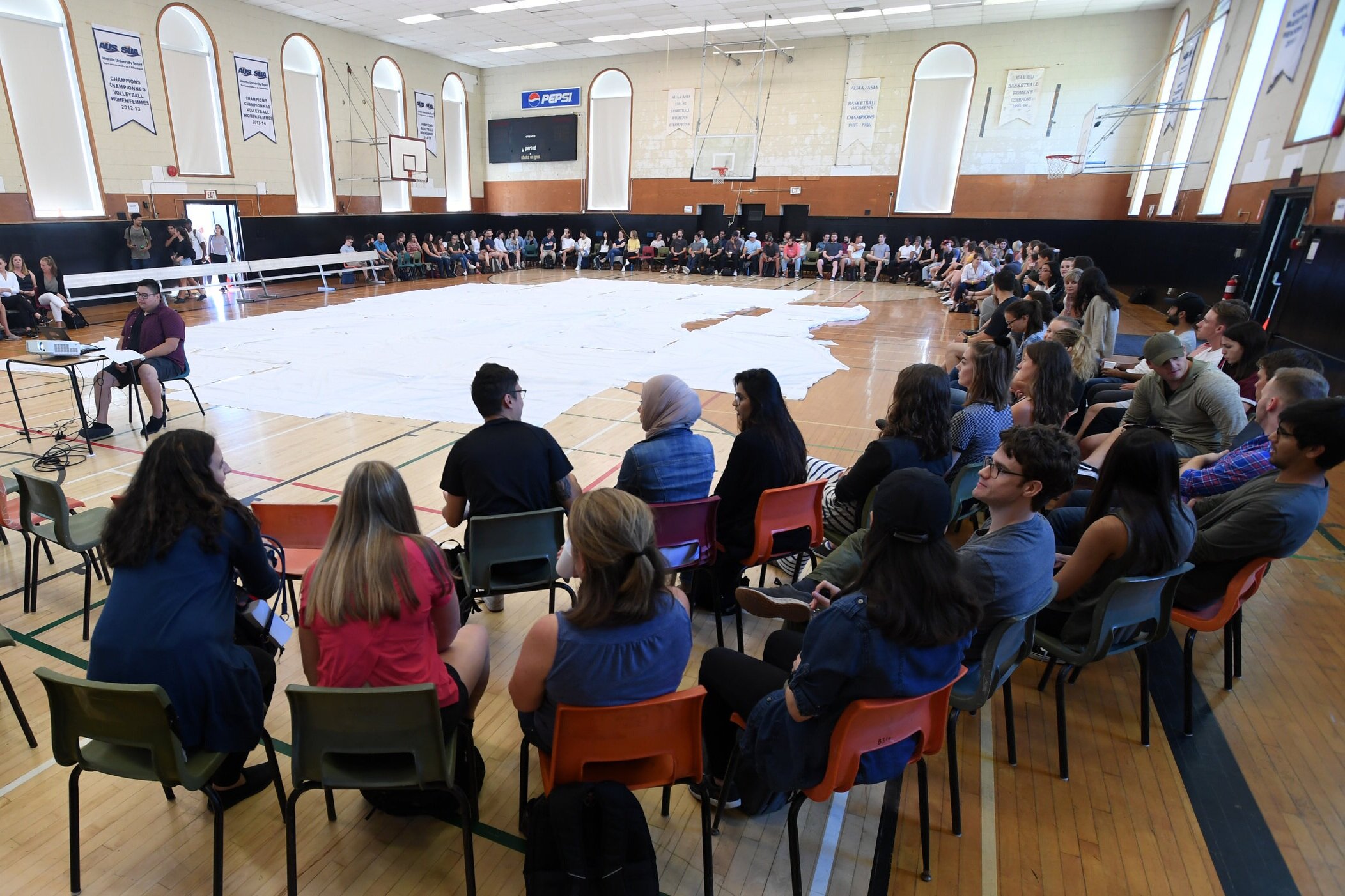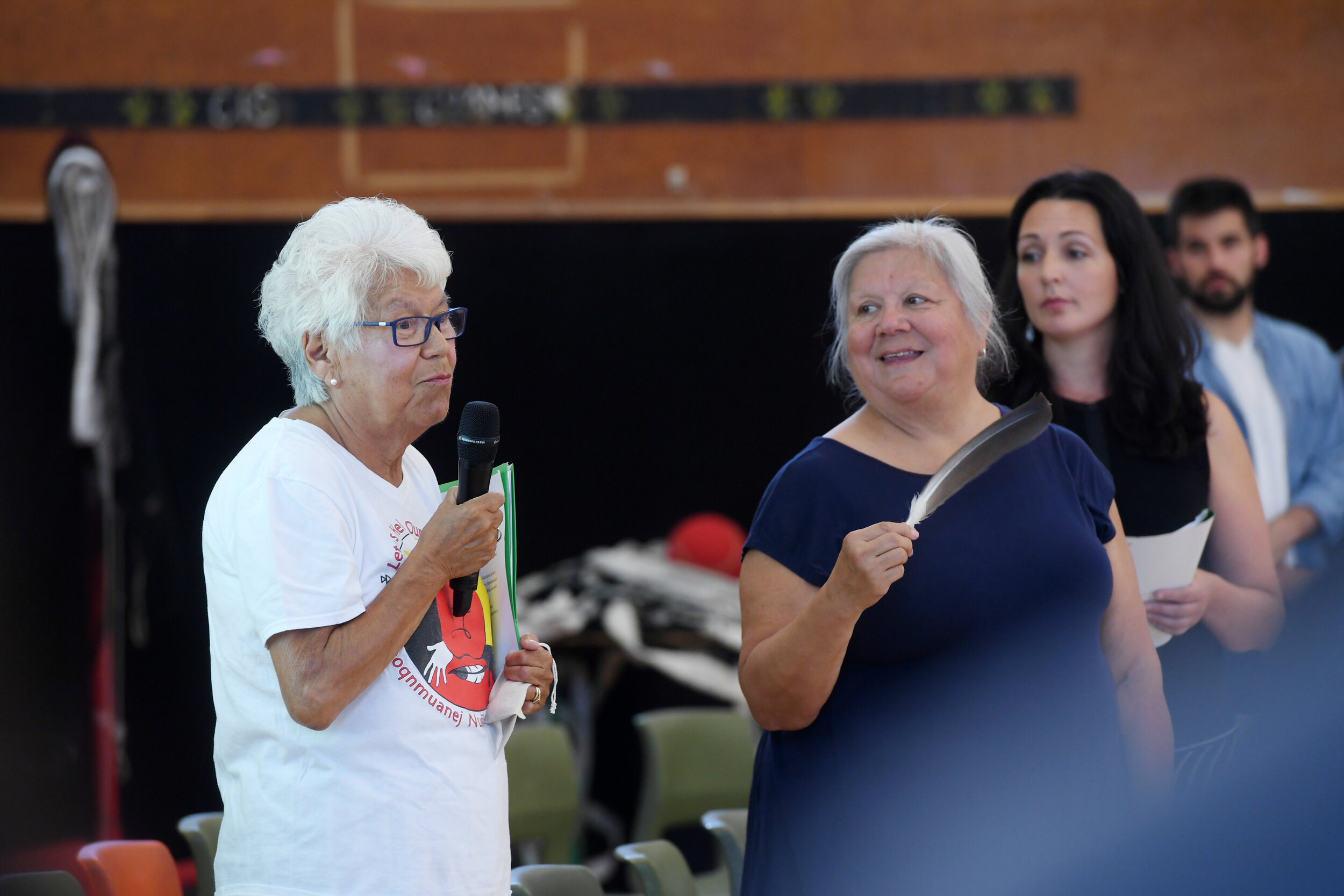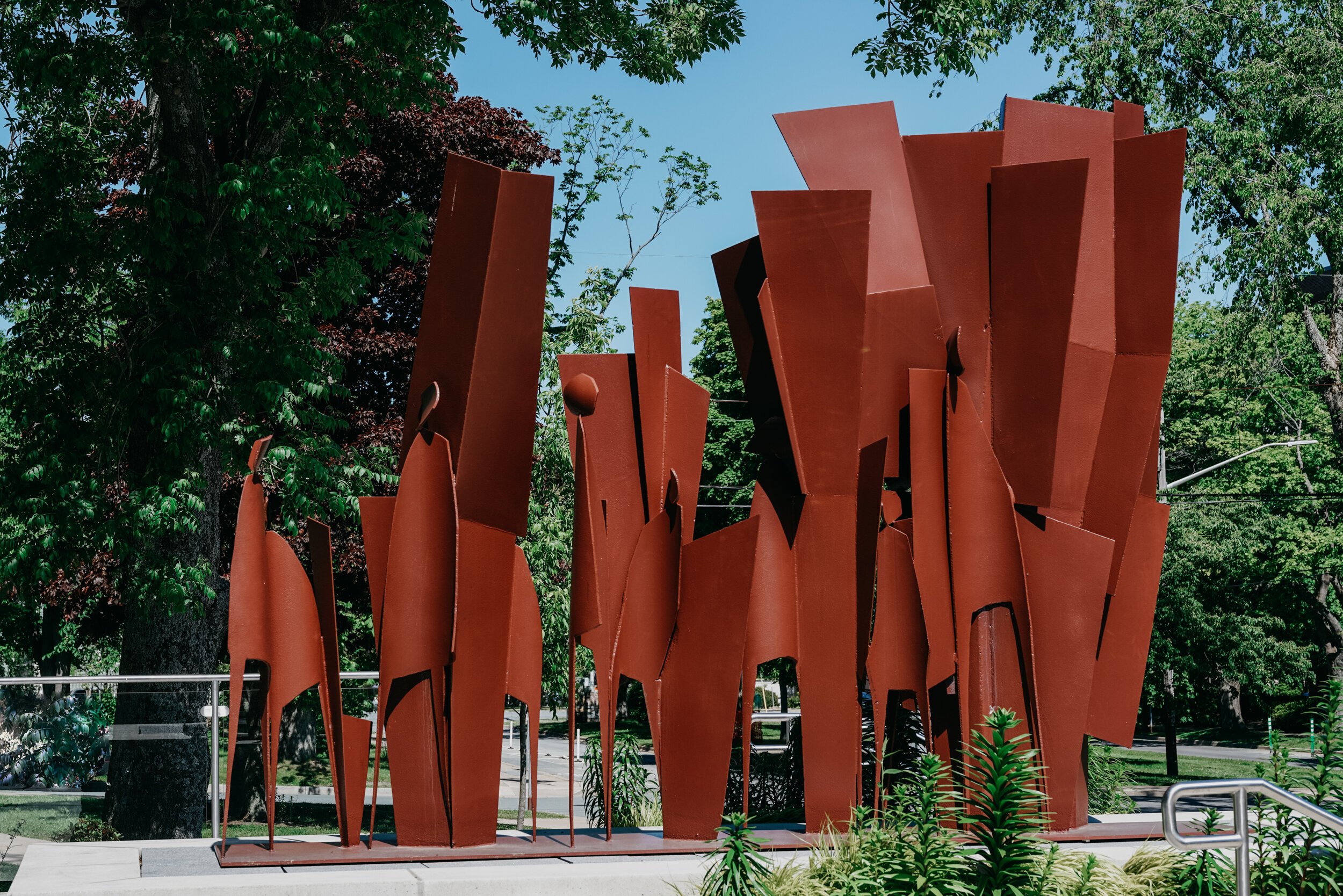Courses & Programs
Learn about course offerings, the Certificate in Aboriginal and Indigenous Law and the Indigenous, Blacks and Mi’kmaq Initiative.
Helpful Definitions
To help in understanding the descriptions below, the following definitions are helpful in reviewing our course offerings:
Aboriginal law—laws developed by Canadian legislators and courts that applies to Indigenous peoples and their relationship with the Canadian state. This concept encompasses the Aboriginal and treaty rights protected by s 35 of the Constitution Act, 1982, federal jurisdiction under s 91(24) of the Constitution Act, 1867, and other constitutional authorities, as well as legislation (such as the Indian Act and several more modern statutes) and common law rules in which Indigeneity is a factor that impacts the applicable law in a given situation.
Indigenous law—refers to the specific legal orders of Indigenous nations. These orders are among Canada’s founding legal orders and continue to grow, evolve, and govern affairs in Indigenous communities today.
Course Offerings
Schulich Law offers a wide and continually expanding array of courses in Aboriginal and Indigenous law. Each year new courses and seminars are being developed. See the list below for current offerings.
For more information and to view any pre-requisites or exclusions please visit the Dalhousie University website by clicking the course title:
Aboriginal People and the Law (LAWS 2280)
Fall 2025 (Metallic)
Credits: 3
Type: Exam
Seats: 60
Pre-Req/Exclusion: None
Description: A deep dive into the foundational principles of historical and contemporary Aboriginal law. Subjects covered will include the historical relationship between Aboriginal people and the Crown, fiduciary duty and the honour of the Crown, Aboriginal and Treaty rights and Title, the duty to consult, self-government, the Indian Act, and, time permitting, important intersections with other areas of law. We will build upon the foundation which students are exposed to in Constitutional Law. These issues will be uncovered through an examination of relevant case law, treaties, statutes, the UN Declaration on the Rights of Indigenous Peoples and other materials.
Indigenous Governance (LAWS 2270)
Fall 2025 (Simon)
Credits: 3
Type: Paper
Seats: 16
Pre-Req/ Exclusion: None
Description: This seminar course is intended for students who want to obtain a deeper appreciation of governance systems and structures that currently apply to First Nation communities pursuant to the Indian Act and other federal legislation and policy, spanning areas such as elections, the exercise of Band Council authority through resolutions and by-laws, membership, essential services program (child welfare, social assistance, education, housing, water, etc.), devolution, land issues and economic development, employment and human rights issues on reserve, and dispute resolution mechanisms. This course will also examine systems beyond the Indian Act, including systems that First Nations communities are currently engaging in and aspiring towards, such as self-government and greater implementation of customary and Indigenous law. This course will be useful for students who intend to work closely with First Nations communities or organizations and government departments servicing those communities.
The course will examine and engage with Indigenous material culture and other physical manifestations of Indigenous law and legal principles, students will be able to explore and understand Indigenous law on a deeper level, further embedding Indigenous laws and ways of knowing into legal education and making room for its resurgence and recognition as a foundational part of the Canadian legal landscape.
Indigenous Law via Material Culture (LAWS 2385)
Winter 2026 (Simon)
Credits: 2
Type: Assignment P/H/F
Seats: 12
Pre-Req/Exclusion: None
Description: The course will examine and engage with Indigenous material culture and other physical manifestations of Indigenous law and legal principles, students will be able to explore and understand Indigenous law on a deeper level, further embedding Indigenous laws and ways of knowing into legal education and making room for its resurgence and recognition as a foundational part of the Canadian legal landscape.
Indigenous Law as Practice: Applying Mi’kmaq Legal Traditions (LAWS 2289)
Winter 2026 (Metallic)
Credits: 2
Type: Assignment
Seats: 18
Pre-Req/Exclusion: None.
Description: This course examines Indigenous legal principles and values and shows that they still exist as resources for decision-making in contemporary circumstances. In this course, we will:
Explore the concept of law and the societal narratives about law and Indigenous peoples that impact our perceptions, understandings and expectations of law generally and Indigenous laws specifically;
Identify and critically evaluate intellectual and practical challenges to recognizing and working with Indigenous laws today;
Understand and explore critical questions about the risks and benefits of scholarly and professional engagement with Indigenous laws today;
Identify and critically evaluate various methods and resources scholars use for engaging with Indigenous laws;
Build our capacity to apply one or more of the identified methods to ascertain Indigenous legal principles from the specific legal tradition of the Mi’kmaq;
Build our capacity to apply Indigenous legal principles to problem-solve a practice fact scenario; and
Develop an understanding of how legal regulation and decision-making can be grounded in Indigenous law.
Kawaskimhon Aboriginal Rights Moot (LAWS 2206)
Winter 2026 (Stewart & Hamp-Gonsalves) (applications now closed for 2025-2026)
Credits: 3
Type: Moot
Seats: 2-6
Pre-Req/ Exclusion: 2280, 2290, or 2270 are pre-reqs. Only one is required.
Description: ‘Kawaskimhon’ means ‘speaking with knowledge.’ This course involves participating in a national moot competition, which is typically based on a high profile case where Aboriginal rights are at issue. Each law school’s team is typically assigned to represent a party or an intervenor. The moot takes two days. Usually, on the first day, teams present oral argument based upon written factums, and on the second day, teams engage in a negotiation process. The host school determines the specific format. The moot problem is typically distributed in December, and the moot is held in early to mid-March. The course will require collective and individual work, extensive research, regular meetings, participation in negotiation and moot exercises, drafting a factum, and participating in the Kawaskimhon moot.
Special Issues in Aboriginal Law (LAWS 2290)
Winter 2026 (Ford)
Credits: 3
Type: Paper
Seats: 16
Pre-Req/Exclusion: None
Description: This course is designed to familiarize students with the current moment in Aboriginal law which, according to the Supreme Court of Canada, is ultimately about reconciliation. As noted by the TRC, reconciliation requires the revitalization of Indigenous laws as well as reforms in Aboriginal law. Unlike LAWS 2280, content may change from year to year based on what are current ‘hot topics’ in Aboriginal law and there will be opportunity for course content to be shaped by students’ interests. Areas of coverage may include Indigenous claims in international law, identity and citizenship, tensions associated with extractive industries, MMIWG and other inquiries. The thematic question we will engage throughout the course is whether existing jurisprudence and policy enable or impede the development of a healthy and just relationship between Aboriginal peoples, the Canadian public, the State, and industry, and between various Aboriginal peoples themselves. This, of course, raises the question of what a healthy and just relationship looks like.
Visitorship in Indigenous Law (LAWS 2286)
Fall 2025 (Gerald Glode)
Credits: 1
Type: Intensive
Seats: 20
Pre-Req/Exclusion: None
Description: This one-credit intensive course will be taught by a visiting professor and will focus on a select topic in the area of Indigenous Law. Assessment will be at the discretion of the instructor but will normally be a 2500-word reflection paper, or an equivalent mode of evaluation. The course will be part of the Aboriginal and Indigenous Law Certificate but does not count as a major paper course. Attendance at all classes is mandatory. Materials for the course will be available to the students at least one week prior to the commencement of the course.
This year’s visiting scholar is Gerald Glode, a Mi’kmaq knowledge holder and educator, recently retired the Confederacy of Mainland Mi’kmaq and the Mi’kmawey Debert Cultural Center. Gerald’s intensive will focus on Mi’kmaq ecological knowledge derived the seasons, the Mi’kmaq months, oral teachings as well as the landscape and archeology.
Courses not on offer this year:
Laws 2227 Dealing with the Past: The Indian Residential Schools Settlement
Laws 2287 Indigenous Feminist Governance
Certificate in Aboriginal and Indigenous Law
In the fall of 2020, the Schulich School of Law introduced the JD Certificate in Aboriginal and Indigenous Law. Aboriginal and Indigenous law intersects with almost every other area of the law in Canada. Students who complete the Certificate will have a broad, critical, well-rounded, and practical educational experience in these areas.
To obtain the Certificate, students must complete a combination of mandatory and elective credits. Students who complete all requirements receive an annotation of their transcript as well as physical certificate upon graduation.



Indigenous, Blacks and Mi’kmaq Initiative
The Indigenous Blacks & Mi'kmaq (IB&M) Initiative at the Schulich School of Law was established in 1989 to increase representation of Indigenous Blacks and Mi'kmaq in the legal profession in order to reduce discrimination.
The IB&M Initiative works to ensure that Mi'kmaw and African Nova Scotian students, and other Aboriginal and Black students, are represented at the Schulich School of Law. The Initiative involves community outreach and recruiting, providing financial and other support to students, developing scholarships in the areas of Aboriginal law and African Canadian legal perspectives, and promoting the hiring and retention of graduates.
Students who enter the Schulich School of Law through the IB&M Initiative join the regular first-year class, write the same exams, complete the same work and earn the same JD degree as all other students. Since the IB&M Initiative began, more than 217 Black and Aboriginal graduates have gone on to pursue careers with private law firms, the judiciary, community organizations, and government. They have taken up a range of leadership roles across Nova Scotia and beyond. The IB&M Initiative has been nationally recognized numerous times as a model for diversity in legal education.



